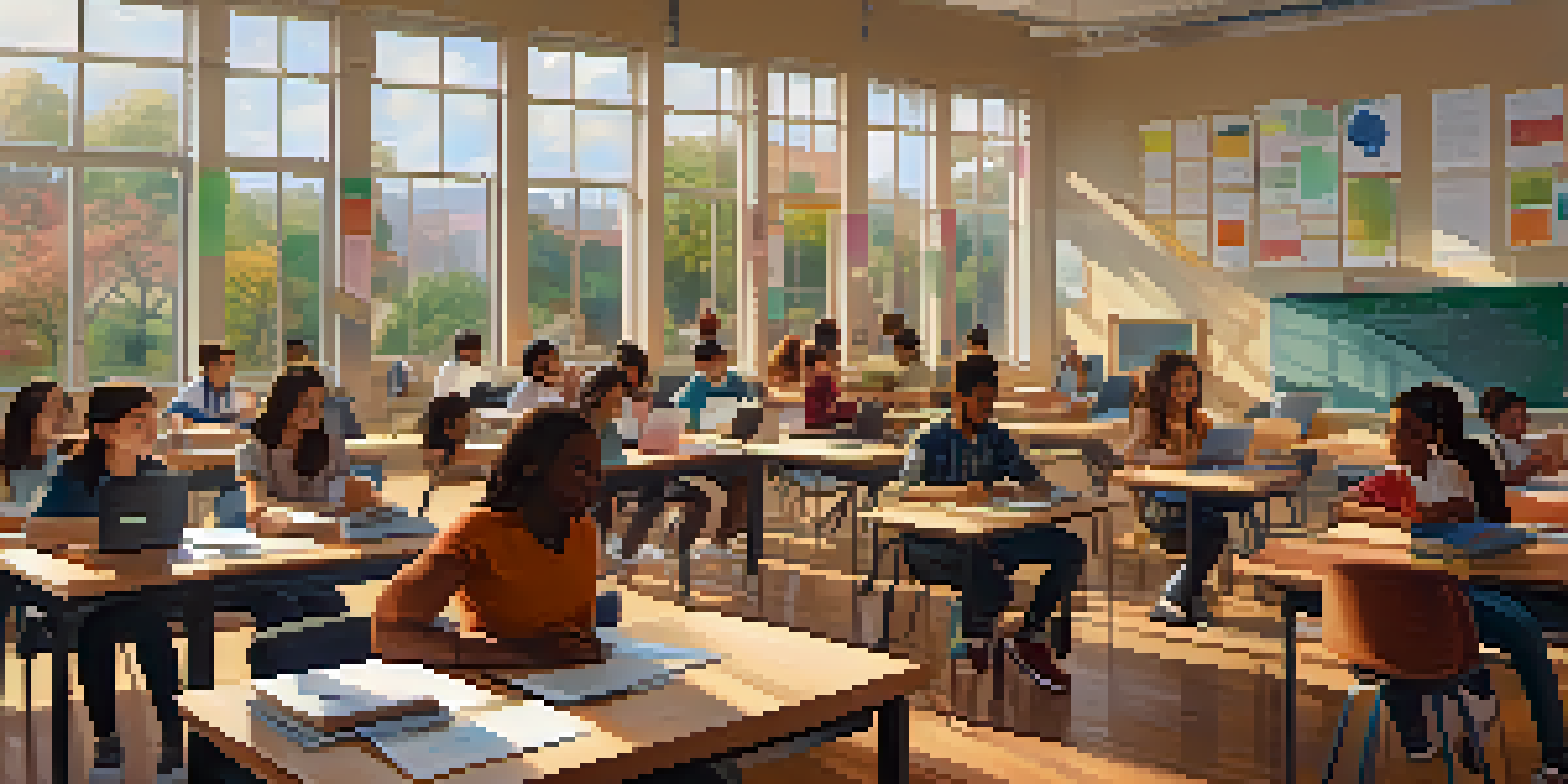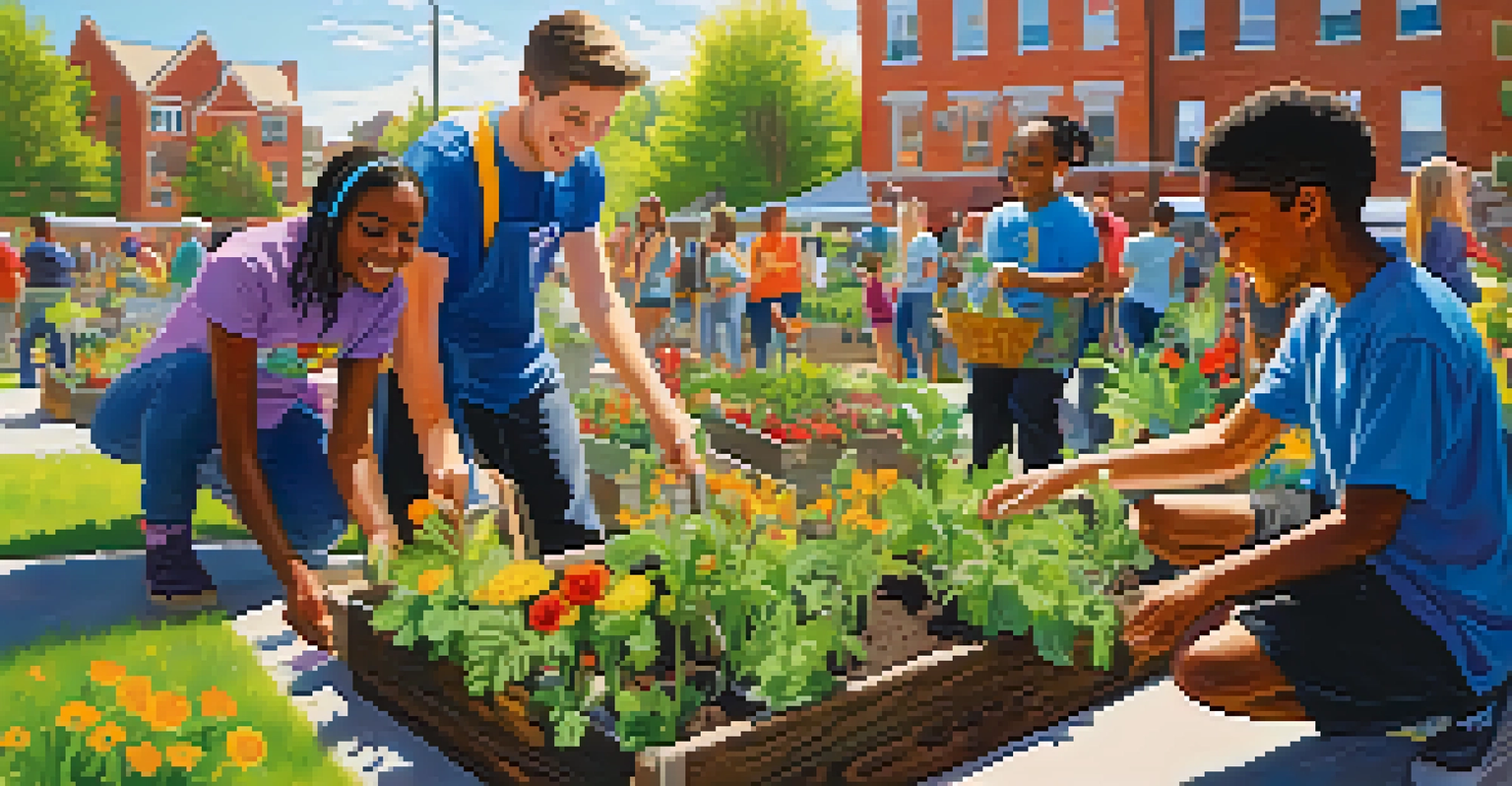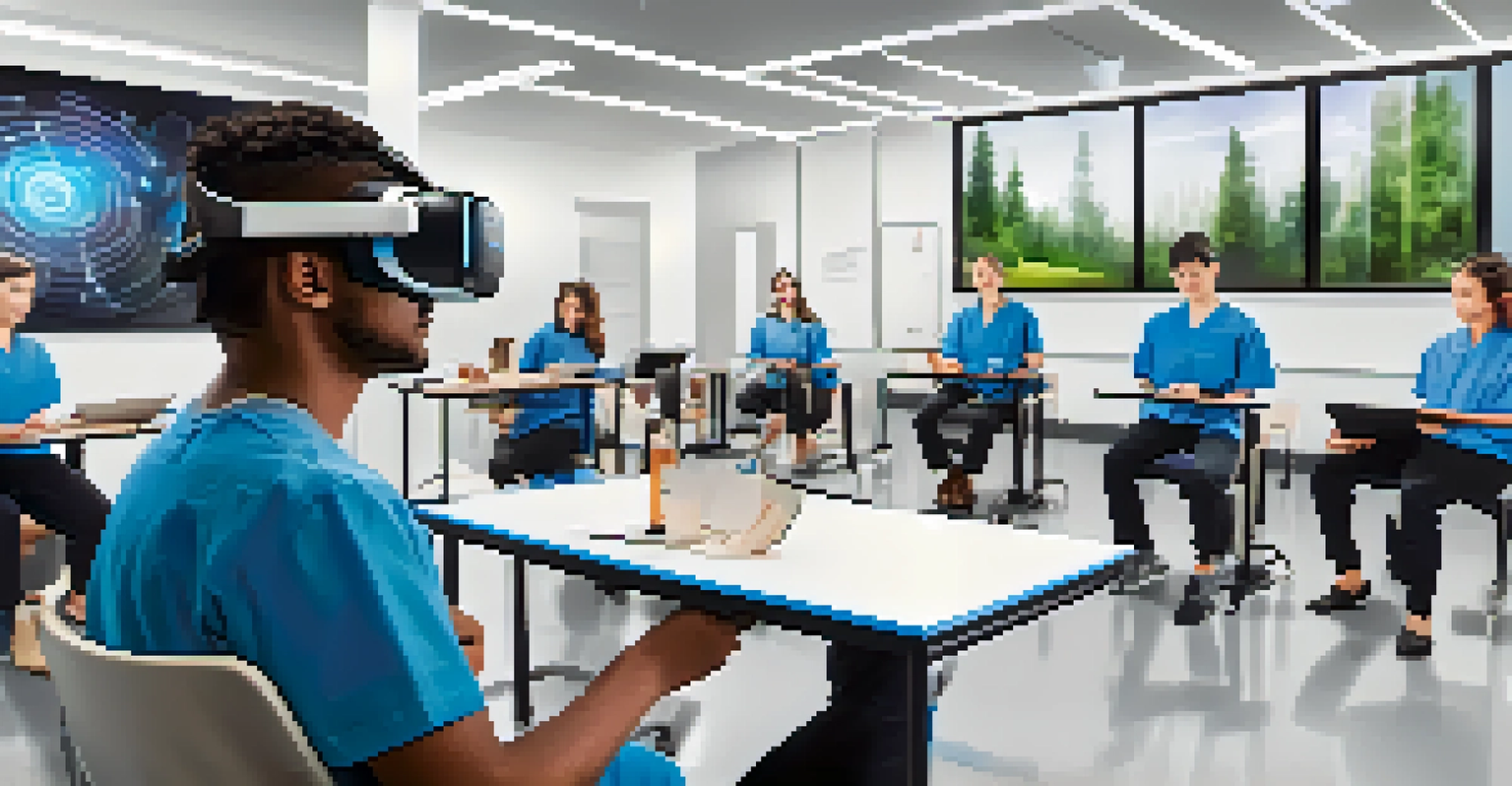Future Trends in Higher Education: Rochester's Role

The Rise of Hybrid Learning Models in Higher Education
In recent years, hybrid learning has emerged as a dominant trend in higher education, blending traditional face-to-face instruction with online components. This model offers flexibility, accommodating diverse learning styles and schedules, which is particularly beneficial for working students. Rochester's institutions are at the forefront, implementing these hybrid models to enhance engagement and accessibility.
Education is the most powerful weapon which you can use to change the world.
Consider a student juggling a full-time job and classes; hybrid learning provides the opportunity to attend lectures online while participating in hands-on workshops in person. This balance not only increases retention rates but also fosters a more inclusive environment for learners from various backgrounds. As universities in Rochester adopt these innovative approaches, they are setting a benchmark for educational practices nationwide.
Moreover, hybrid learning encourages collaboration through digital platforms, allowing students to connect with peers and professors beyond geographical boundaries. As we move forward, it’s clear that this trend will continue to evolve, shaping the educational landscape in Rochester and beyond.
Emphasis on Lifelong Learning and Skills Development
The concept of lifelong learning is gaining traction, as the job market increasingly demands adaptability and continuous skill enhancement. Rochester is embracing this trend by offering workshops, online courses, and certifications designed for individuals at various career stages. This commitment reflects a shift in higher education that prioritizes skills development over traditional degree paths.

For instance, professionals looking to pivot their careers can find a wealth of resources in Rochester, from coding boot camps to leadership training programs. These opportunities not only empower individuals but also contribute to the local economy by ensuring a skilled workforce. By fostering a culture of lifelong learning, Rochester is positioning itself as a leader in workforce development.
Hybrid Learning Enhances Flexibility
Rochester's hybrid learning models combine online and in-person instruction to accommodate diverse student needs and schedules.
Additionally, institutions are partnering with local businesses to create tailored programs that meet specific industry needs. This collaboration ensures that learners acquire relevant skills while providing employers with a steady stream of qualified candidates, further solidifying Rochester's role in the future of education.
Integration of Technology in Educational Practices
Technology is transforming the way education is delivered, and Rochester's universities are embracing this change wholeheartedly. From virtual reality simulations in healthcare training to AI-driven personalized learning platforms, technology is enhancing the educational experience. These advancements not only make learning more interactive but also prepare students for tech-centric workplaces.
The beautiful thing about learning is that no one can take it away from you.
An example of this integration is the use of learning management systems that enable students to track their progress and access resources anytime, anywhere. This flexibility is particularly appealing to non-traditional students who may have other commitments. By harnessing technology, Rochester's institutions are creating a more engaging and effective learning environment.
Moreover, the focus on tech integration extends beyond classrooms. Many universities in Rochester are establishing partnerships with tech companies to provide students with real-world experiences, ensuring they are job-ready upon graduation. This synergy between education and industry is crucial for fostering innovation and maintaining relevance in a rapidly changing job market.
Diversity and Inclusion as Educational Imperatives
Diversity and inclusion are no longer just buzzwords; they're essential components of a successful educational environment. Rochester is actively promoting these values through initiatives aimed at increasing representation and support for underrepresented groups in higher education. This commitment enriches the learning experience for all students by fostering a variety of perspectives.
For instance, scholarships and mentorship programs are designed to attract and retain students from diverse backgrounds, ensuring they have the resources needed to succeed. By creating a supportive community, Rochester’s institutions are not only enhancing educational outcomes but also cultivating future leaders who reflect society's diversity.
Lifelong Learning Drives Skills Growth
The emphasis on lifelong learning in Rochester promotes continuous skill development through tailored workshops and courses.
Additionally, curriculum development is increasingly incorporating global perspectives and cultural competencies, preparing students for a multicultural workforce. As Rochester continues to champion diversity and inclusion, it sets a powerful example for other educational institutions across the country.
The Role of Community Engagement in Higher Education
Community engagement is becoming a cornerstone of higher education, with institutions recognizing their role in addressing local challenges. Rochester's universities are developing partnerships with community organizations to provide students with hands-on learning experiences while contributing positively to society. This approach fosters a sense of responsibility and civic engagement among students.
For example, service-learning programs allow students to apply their academic skills in real-world settings, tackling issues such as food insecurity or education access. These experiences not only enhance students' learning but also strengthen community ties, creating a win-win situation. As students engage with local communities, they gain invaluable insights and skills that prepare them for their future careers.
Moreover, community engagement initiatives often lead to exciting research opportunities, where students and faculty collaborate on projects that benefit both the university and the community. By prioritizing these partnerships, Rochester is reinforcing the idea that education should extend beyond the classroom and into the heart of the community.
Sustainability and Environmental Awareness in Education
Sustainability is a growing concern across all sectors, and higher education is no exception. Rochester's institutions are leading the charge by incorporating sustainability into their curricula and campus operations. This commitment to environmental stewardship not only prepares students for green careers but also promotes a culture of responsibility among future generations.
For instance, many universities are integrating sustainability topics into various disciplines, encouraging students to consider the environmental impact of their work, regardless of their field. Additionally, campus initiatives such as recycling programs, energy-efficient buildings, and green spaces further reinforce these values. By prioritizing sustainability, Rochester is setting a standard for environmental responsibility in education.
Community Engagement Fosters Responsibility
Rochester's universities are partnering with local organizations to provide students with hands-on learning experiences that address community challenges.
Furthermore, collaborations with local governments and organizations focus on community-wide sustainability efforts, creating opportunities for students to engage in impactful projects. As students contribute to these initiatives, they develop a sense of agency and commitment to protecting the planet, highlighting Rochester's role as a leader in sustainable higher education.
Globalization and International Collaboration in Education
In our interconnected world, globalization is reshaping higher education, and Rochester is embracing this trend with open arms. Many universities are forging international partnerships to enhance academic offerings and provide students with global perspectives. This collaboration not only enriches the learning experience but also prepares students for careers in a globalized economy.
For example, study abroad programs and exchange initiatives allow students to immerse themselves in different cultures while gaining valuable skills. These experiences often lead to lasting connections and broaden students' horizons, making them more competitive in the job market. By prioritizing international collaboration, Rochester is cultivating a generation of globally-minded leaders.

Moreover, institutions are increasingly incorporating diverse cultural perspectives into their curricula, reflecting the realities of a global workforce. As students engage with these diverse viewpoints, they develop critical thinking skills and cultural competence, essential for success in today's world. Rochester’s dedication to globalization ensures that its students are well-equipped to navigate an ever-changing landscape.